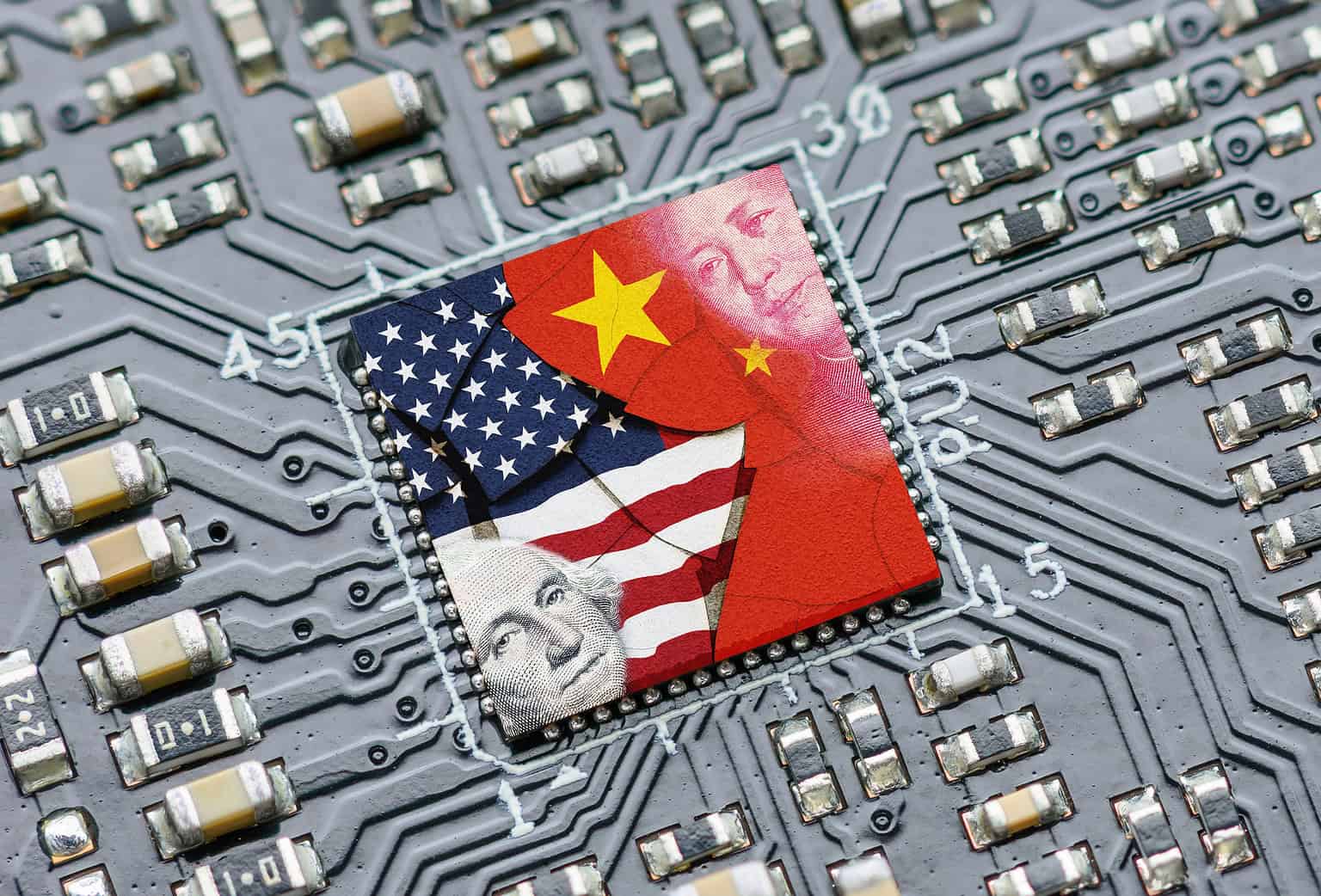In a move with significant implications for the global technology landscape, former US President Donald Trump has definitively declared that American chipmaker Nvidia will be barred from selling its most advanced artificial intelligence (AI) processors to China.
The announcement, made aboard Air Force One and reinforced in a televised interview, signals a hardline approach to protecting American technological supremacy, a policy that could reshape global supply chains and deepen the digital divide.
Speaking to reporters, Trump specifically highlighted Nvidia’s newly released Blackwell architecture, describing it as being “10 years ahead of every other chip.” He left no room for ambiguity, stating, “we don’t give that chip to other people.” This position reinforces comments from a CBS 60 Minutes interview aired Sunday, where he told correspondent Norah O’Donnell that while China could “deal with Nvidia” on other products, the “most advanced” chips would be restricted to the United States.

The Heart of the Matter: The Blackwell Chip
The Nvidia Blackwell platform represents the cutting edge of AI computing. These powerful processors are essential for training and running the complex large language models and AI systems that are driving the next wave of technological innovation, from advanced robotics to predictive analytics. By restricting their sale, the US aims to slow China’s progress in developing sophisticated AI applications, citing escalating concerns over national security and potential military use.
This is not a new strategy; the Biden administration had already imposed strict export controls on advanced semiconductors to China. However, Trump’s definitive public declaration, particularly while campaigning for a return to the White House, cements this as a enduring, bipartisan US policy stance.
Implications for Africa and the Global South
For a Pan-African audience, this escalating tech cold war carries profound implications. As nations across the continent seek to digitize their economies, build robust tech ecosystems, and harness AI for development, access to the necessary hardware is paramount.
- A Widening Digital Divide: The restriction could accelerate a bifurcation of the global tech sphere, with one bloc having access to the most powerful tools and another making do with less advanced alternatives. This risks leaving African nations and other countries in the Global South on the wrong side of a new technological iron curtain.
- Supply Chain and Cost Pressures: As the US and China decouple their tech sectors, global supply chains could face further disruption. This may lead to increased costs and reduced availability of high-performance computing resources for African startups, universities, and research institutions.
- Strategic Choices: The situation forces nations to navigate an increasingly complex geopolitical terrain. It may pressure African governments to carefully consider their technology partnerships and sourcing, balancing relationships with both the US and China, a major investor and tech provider on the continent.
The blockade on advanced chip sales is more than a bilateral trade issue; it is a signal that control over foundational technologies is now a primary front in global competition. For Africa, the challenge will be to forge a path that ensures it is not merely a spectator, but an active participant with sovereign control over its own digital future.

Leave a Reply